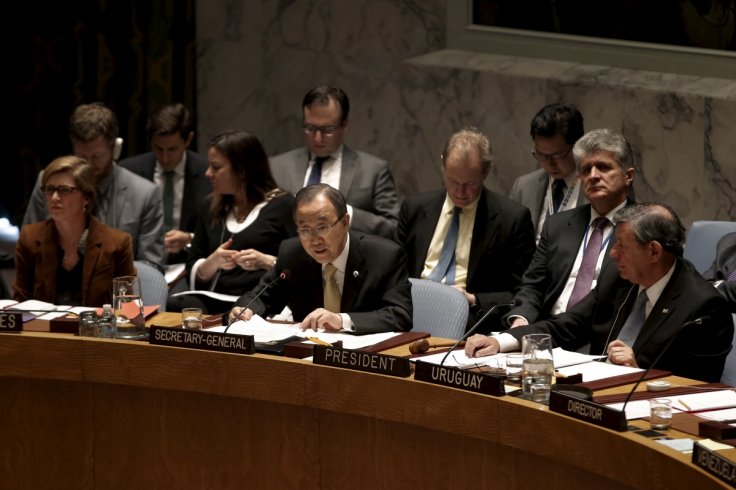
The United States has submitted to the UN Security Council a draft resolution that lays out tougher sanctions on North Korea.
The US is backed by China as it proposes to impose "tougher, more comprehensive" sanctions on Pyongyang after it carried out nuclear and missile tests.
Samantha Power, the US ambassador to the UN, said the sanctions are "a major upgrade" from past resolutions.
"There will be, provided it goes forward, pressure on more points - tougher, more comprehensive - more sectors. It's breaking new ground in a whole host of ways," she said.
"These sanctions, if adopted, would send an unambiguous and unyielding message to the DPRK regime. The world will not accept your proliferation. There will be consequences for your actions," Power said.
The sanctions, which the US says will be the strongest imposed by the Security Council in more than 20 years, will need to be approved by the UN Security Council. The Council could meet over the weekend to discuss the draft.
The draft resolution took shape after lengthy negotiations between US and China, the two veto powers. "There were a significant number of blockage points between the (United States and China) ... but there is an agreement between those two countries," a Security Council diplomat said.
What are main recommendations?
The draft resolution is a "significantly substantive text", and it contains "a large number of very tough measures," AFP reported citing diplomats.
The draft also includes names of specific people to be added to the existing UN sanctions blacklist.
Another proposal is the mandatory inspection of all cargo shipped to and originating from North Korea and banning North Korean ships from port calls.
"For the first time in history, all cargo going in and out of the DPRK (North Korea) would be subjected to mandatory inspection," Power said, according to the BBC.
Under the new set of sanctions, North Korean ships suspected of carrying illegal goods will be banned from ports across the world.
The arms embargo on North Korea, which has been in place since 2006, will now include small arms as well.
Exports of coal, iron, gold, titanium and rare earth minerals from North Korea will be banned.
Again, Pyongyang's supply of aviation fuel including rocket fuel will be blocked.
Years of tough UN sanctions had done little to dissuade the North Korean regime from going ahead with its nuclear and ballistic missile programme, the world powers believe.
Ten years after the country came under severe sanctions, Pyongyang said in early January it 'successfully' tested its first hydrogen bomb, exacerbating the security scenario in the region.
It was followed up with a rocket launch earlier this month, where Pyongyang claimed it placed an earth observation satellite into orbit. But that led to concerns that it was another milestone in Pyongyang's programme to build a long-range missile that can carry arsenal including nuclear weapons.








